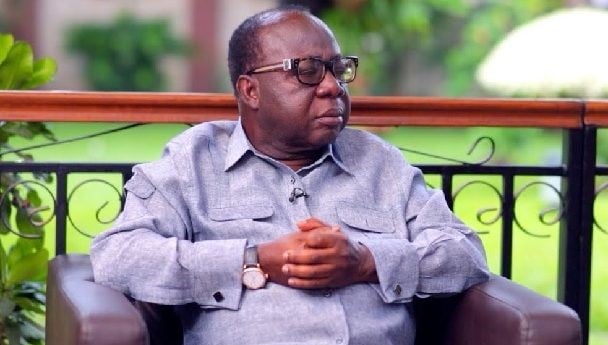Freddie Blay, former National Chairman of the New Patriotic Party (NPP), has expressed surprise at the party’s defeat in the 2024 General Election, despite acknowledging the challenging economic backdrop against which the Akufo-Addo administration governed. While accepting the unexpected outcome of the election, Blay maintained that the NPP had performed admirably in managing the economy, promoting good governance, and ensuring peace and stability within the country. He pointed to the government’s efforts in reviving a struggling economy, characterized by a low GDP prior to their tenure, as evidence of their commitment to national progress. Despite these perceived achievements, the NPP’s electoral fortunes took an unexpected turn, leading to a period of reflection and strategic planning for the party as they prepare for the 2028 elections.
Blay’s assertion that the NPP government, led by President Akufo-Addo, had effectively steered the Ghanaian economy through turbulent waters forms a central point of his analysis. He emphasized the difficulties inherited from the previous administration, including the low GDP, as a critical context for evaluating their performance. The outgoing Chairman argued that despite these challenges, the NPP had implemented policies and initiatives aimed at revitalizing the economy and setting it on a path of growth and stability. His surprise at the election results stems from a belief that the NPP’s economic management, coupled with their efforts in good governance and peacebuilding, would resonate positively with the electorate and translate into a renewed mandate.
The unexpected loss in the 2024 election represents a significant setback for the NPP, forcing the party to introspect and reassess its strategies. The transition of power to President-elect John Dramani Mahama, scheduled for January 7, 2025, marks a definitive shift in the political landscape of Ghana. This transition period presents the NPP with an opportunity to analyze the factors that contributed to their defeat and to formulate a roadmap for reclaiming power in the next electoral cycle. The party will need to engage in critical self-evaluation, addressing both internal dynamics and external perceptions, to ensure a more effective campaign in the future.
Blay’s comments reflect a broader sentiment within the NPP, attempting to reconcile their perceived achievements with the stark reality of electoral defeat. The party’s leadership and members are now tasked with understanding the disconnect between their assessment of their performance and the voters’ ultimate decision. This understanding will be crucial in shaping the party’s future trajectory and its ability to connect with the electorate in the years leading up to the 2028 elections. The NPP faces the challenge of regaining public trust and demonstrating a renewed responsiveness to the needs and aspirations of the Ghanaian people.
The defeat necessitates a period of rebuilding and reorganization within the NPP. The party will likely undertake a comprehensive review of its policies, campaign strategies, and internal structures. This process of internal reflection will involve examining the strengths and weaknesses that emerged during the 2024 campaign and identifying areas for improvement. The NPP will need to adapt to the evolving political dynamics, refine its message to resonate with a broader electorate, and strengthen its grassroots mobilization efforts. The party’s ability to effectively address these challenges will be crucial in determining its future electoral prospects.
The 2024 election results represent a significant moment in Ghana’s political history. The transition of power from the NPP to the NDC underscores the democratic principles underpinning the country’s governance system. The NPP’s defeat serves as a reminder of the dynamic nature of electoral politics and the importance of continuous engagement with the electorate. As the NPP embarks on a period of introspection and renewal, the focus will be on learning from the past, adapting to the present, and strategizing for the future. The party’s ability to navigate this period of transition and emerge stronger will be a determining factor in its ability to contend for power in 2028.


